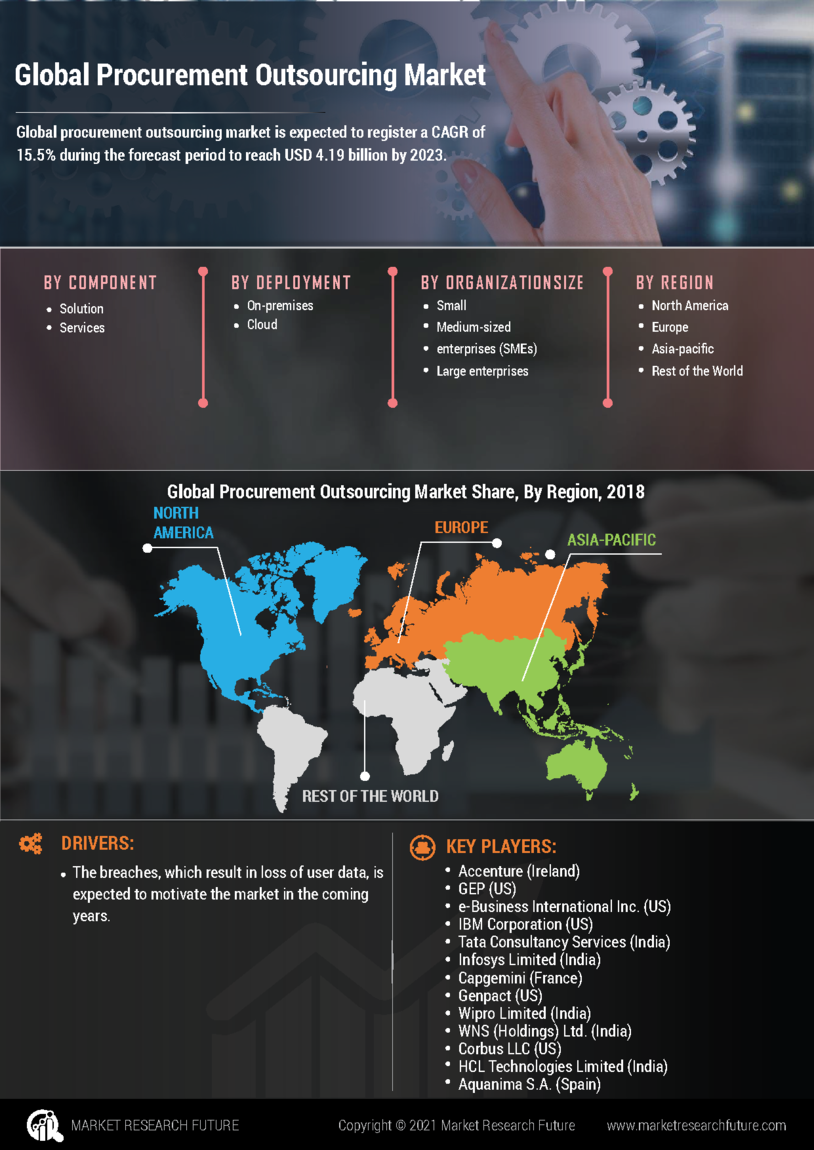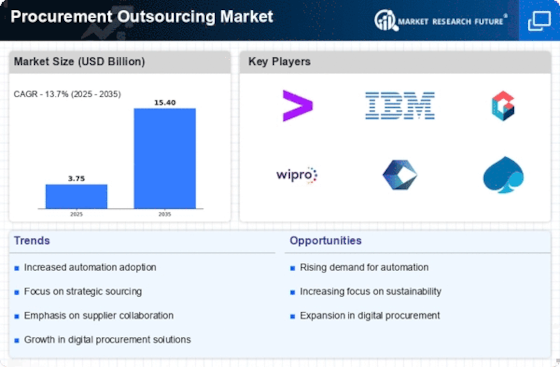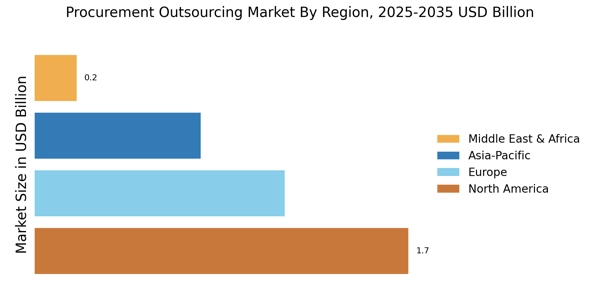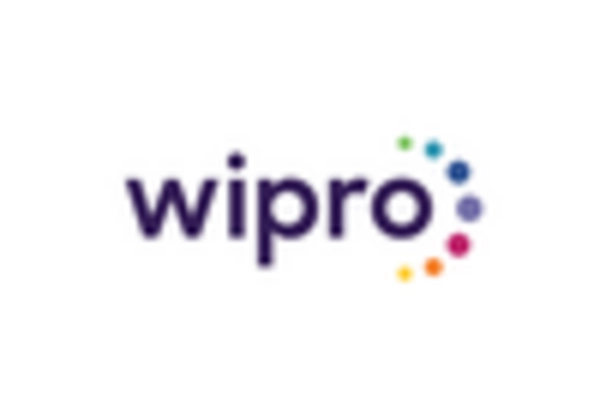Cost Efficiency
The Procurement Outsourcing Market is increasingly driven by the need for cost efficiency among organizations. Companies are seeking to reduce operational costs while maintaining quality and service levels. By outsourcing procurement functions, businesses can leverage the expertise of specialized firms, which often results in lower costs due to economies of scale. According to recent data, organizations that engage in procurement outsourcing can achieve cost reductions of up to 30%. This trend is particularly evident in sectors such as manufacturing and retail, where competitive pressures necessitate stringent cost management. As firms continue to prioritize financial performance, the demand for procurement outsourcing services is likely to grow, further solidifying its role in the market.
Regulatory Compliance
Regulatory compliance is becoming an increasingly critical driver in the Procurement Outsourcing Market. Organizations face a myriad of regulations that govern procurement practices, and non-compliance can lead to significant financial penalties and reputational damage. By outsourcing procurement functions to specialized firms, companies can ensure adherence to relevant laws and regulations, thereby mitigating risks associated with compliance failures. The demand for procurement outsourcing services is likely to rise as businesses seek to navigate complex regulatory environments more effectively. This trend underscores the importance of compliance in shaping procurement strategies and highlights the role of outsourcing in achieving regulatory objectives.
Focus on Core Competencies
In the Procurement Outsourcing Market, organizations are increasingly focusing on their core competencies. By outsourcing procurement functions, companies can concentrate on their primary business activities, thereby enhancing overall productivity and innovation. This strategic shift allows firms to allocate resources more effectively, directing attention to areas that drive competitive advantage. Data suggests that businesses that outsource procurement functions report improved operational efficiency and faster time-to-market for new products. As firms recognize the value of focusing on their strengths, the trend towards procurement outsourcing is expected to gain momentum, reshaping the landscape of the industry.
Technological Advancements
Technological advancements are a pivotal driver in the Procurement Outsourcing Market. The integration of advanced technologies such as artificial intelligence, machine learning, and data analytics is transforming procurement processes. These technologies enable organizations to enhance decision-making, optimize supply chain management, and improve supplier relationships. For instance, firms utilizing AI-driven procurement solutions can analyze vast amounts of data to identify cost-saving opportunities and streamline operations. The adoption of such technologies is projected to increase, with the market for procurement software expected to reach several billion dollars in the coming years. This technological evolution is likely to redefine the procurement outsourcing landscape, making it more efficient and responsive to market demands.
Supplier Relationship Management
Effective supplier relationship management is a key driver in the Procurement Outsourcing Market. Organizations are increasingly recognizing the importance of fostering strong relationships with suppliers to enhance collaboration, innovation, and overall supply chain performance. Outsourcing procurement functions allows companies to leverage the expertise of specialized firms that excel in managing supplier relationships. This approach can lead to improved negotiation outcomes, better quality products, and enhanced service levels. As businesses strive to optimize their supply chains, the focus on supplier relationship management is expected to intensify, further propelling the growth of procurement outsourcing services.

















